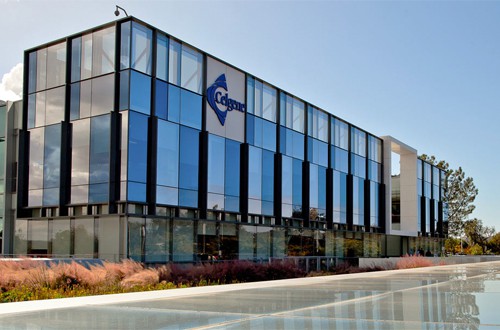
Celgene has re-submitted its multiple sclerosis (MS) drug ozanimod to the FDA, more than a year on since the filing was rejected by the US regulator.
It first filed the drug in February last year, but Celgene’s failure to include in its dossier key nonclinical and clinical pharmacology information meant the FDA rejected the new drug application (NDA).
The mistake was seen as a huge own goal by Celgene, and further undermined already shaky investor confidence in the company’s leadership.
Things have changed since then, most notably BMS’ $74bn takeover of Celgene, which looks set to go ahead later this year, despite some discontent about the deal from sharehoiders.
The drug is still seen as a potential blockbuster, however, and is one of six key launches BMS highlighted as the rationale for the merger.
Ozanimod is an oral, sphingosine 1-phosphate (S1P) receptor modulator, and is also being developed to treat ulcerative colitis and Crohn’s disease.Analysts had predicted the drug could reach peak sales of $5bn once on the market, but this target could be harder to reach now, as Novartis has filed its rival SP1 targeting drug Mayzent (siponimod) in the meantime.
The new submission is based on the SUNBEAM study, a phase 3 trial evaluating the efficacy, safety and tolerability of two doses of oral ozanimod against weekly Avonex, current standard of care for those with relapsing forms of MS.
The primary endpoint of that trial was annualised relapse rates (ARR) during the treatment period, and secondary MRI endpoints included the number of new of enlarging hyper intense T2-weighted brain lesions over 12 months and percent change from baseline in whole brain volume at month 12.
It also pooled data from RADIANCE part B, another phase 3 trial that compared the drug to Avonex, but over a 24-month treatment period.
“New oral treatment options with differentiated profiles like ozanimod are needed to help address an unmet need for people with relapsing forms of MS,” said Jay Backstrom, chief medical officer, Celgene, who now expects approval in the US and EU (where it has also just been filed) by 2020.
Novartis says Mayzent is the first and only drug proven to delay progression in patients with secondary progressive multiple sclerosis. Novartis is confident that Mayzent, which is part of a wave of second-generation S1P-receptor modulators that are more selective, offers a superior efficacy and safety profile.
Novartis has used a priority review voucher to speed up Mayzent’s regulatory process with the FDA, with a decision expected a decision within weeks.




